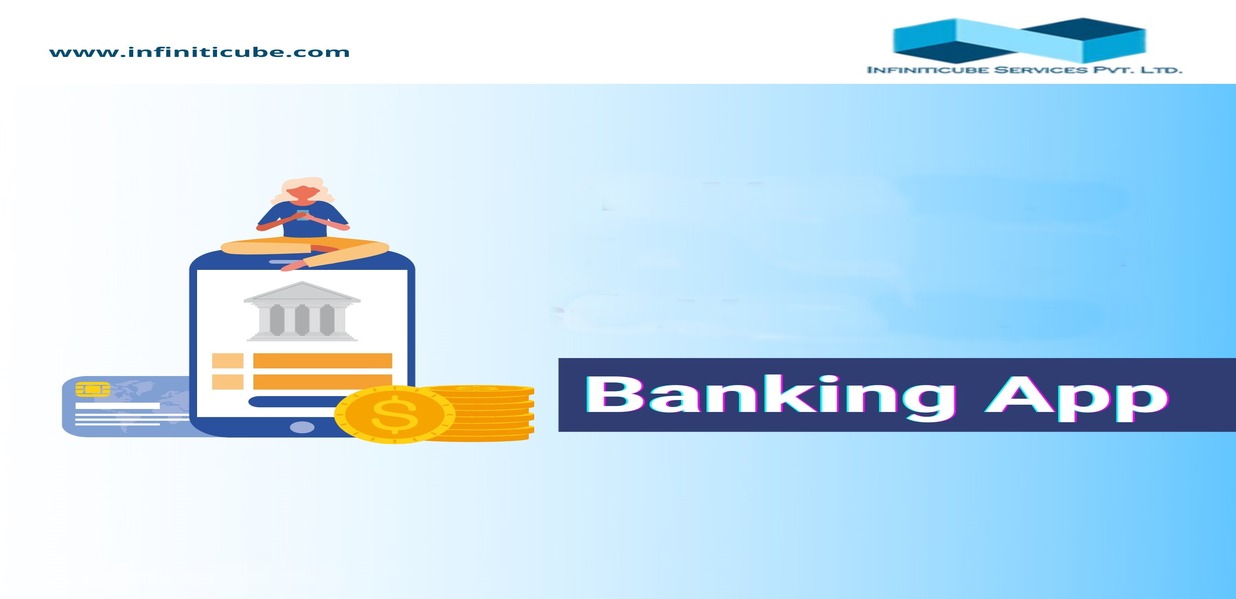4 Basic Elements of a Successful Digital Banking Transformation
Digital transformation is sailing across financial activities. Confronting the ever-increasing fight from internet goliaths, Fintech, Facebook, and other involved parties.
Banks now must keep up if they are looking to compete. To what extent are they going today? What steps can they take to expedite and enhance the transformation?

Bank Smarter Anytime, Anywhere with Our Mobile App!
What is Digital Banking?
Digital transformation in banking is pushing banks to embrace new technologies and services at all levels.
What does a digital transformation in banking imply, anyway?
Digital transformation in banking generally leads to a transformation in providing online and digital services, and a sizeable lot of backend changes needed to bolster this shift.
Various banks get it wrong by picking up on a whole range of separate digital initiatives, which grapple with success because they don’t have the help or system to rival digital-native solutions.
Digital transformation in banks should include top-down techniques, combining digital systems, customer experience platforms, apps, and support.
Digital Transformation in Banking Examples:
- Blockchain Technology
- Using Artificial Intelligence (AI)
- Customer Data Compilation, Management & Analysis
Although digital transformation in banking may involve a lot of stuff, the following principles will put you on the right course to devise a strategy for your own bank’s digital transformation campaign.
The Evolving Digital Journey
Most banks set up their digital campaigns a long time ago and have explicit digital strategies, finally, even those are also dealing with profound transformations.
Notably, when more consumers adopt their mobile phones and tablets to do their banking, and the multichannel approach gets hold of financial services, the mobile experience is turning into a key feature of the digital strategy that banks need to discuss.
Second, to sustain this ever-growing market, conventional banks will have to adjust to their working models. Specifically, developments in IT, modern products and services improvement, and varying hopes for time-to-market will be decisive factors in the future.
Possibly the primary step is that banking in the digital age demands an extreme, profound reset of how banking personnel react to consumer demands. This implies thinking about the customer first, as opposed to the channel; as one panelist says,
It implies being mindful that small digital competitors can get market share sooner and thus that is more unsettling to conventional banks’ models. It means looking inside, adjusting organizational principles and customs to help consumers and encourage digital innovation.
A new mindset of banking — under the control of elite executives — will show the path to focus on market shifts, growing into more agile, and enhancing transparency in daily business.
To set up a digital transformation strategy, the Boston Consulting Group proposes that banks and credit unions zero in on the four priorities:
- Recreate the customer journey
- Leverage the power of data
- Redefine the operating model
- Build a digital-driven organization

Your Bank in Your Pocket: Experience Seamless Mobile Banking!
#1 Recreate the Customer Journey
- Look at the customer journey on Amazon’s one-click ordering: look at it, click it, and purchase it. For many customers, that’s the ideal purchase journey.
- Recreate the same journey for your customers with your bank or credit union, which usually takes days or even weeks.
- Banking management needs to figure out what affects most at crucial stages in the customer journey — which will differ enormously between various consumer sections-and then work fiercely to enhance the experience.
- The goal is to fully digitize the customer’s journey from start to finish.
- This digitization does three things: makes consumers happy, frees up staff, and concurrently saves money by simplifying processes.
- Do it in a way that puts the customer at the center of everything you do.
- Siam Commercial Bank has determined five consumer journeys — prospecting, guidance and selling, onboarding, transactions, and administration — and is digitizing all of them.
- Financial systems that digitize the most significant customer journeys can enhance revenues by up to 20% and cut down on expenses by up to 25%.
- To identify the most effective consumer journeys, you must do your homework.
- Examine customer transaction records, call center records, and online data to determine those places in the journey that are creating the most pain.
- Transforming merely a few journeys can create a major difference.
#2. Take advantage of Data
- Data analytics permits banks and credit unions to further interpret customers, find trade possibilities, and cut down expenses.
- Advanced analytics lets financial bodies better expect bad loans or find customers who, because of bias discounting, are underpaying and then repricing these products and services.
- One more solution to use granular cluster analysis is to study an individual customer product mix to the average for that consumer-type ties.
- Banks and credit unions can employ data mining for better prospecting and customer targeting.
- Data mining can encourage banks and credit unions to revive themselves as friends that provide exceptionally customized solutions to their customers, as opposed to providers trying to force products that might not fit buyer’s demands.
- Banks and credit unions can use data mining to develop pricing.

Simplify Your Finances with Our Powerful Mobile Banking App!
#3. Redefine the Operating Model
Customers need agility and comfort and also, need advice for more complicated products namely investments or debts, or when they face an issue.
Boston Consulting Group recognizes three digital operating models:
There is no ideal operating model,” Boston Consulting Group notes, adding that many financial institutions operate all three models in various markets, areas, and business groups.
#4. Build a Digital Driven Organization
- As a digital-driven bank or credit union, digital is interpreted as a preference that requires a precisely articulated plan, financing, expertise, energetic ways of working, and organizational habits that will take risks. That’s hard to accomplish, but it can be worthwhile.
- The perfect spot to get ideas on how to build a digital-driven organization is to follow the example of fintech. For the most suitable learning and sharing of proven methodologies, join Fintech, says Boston Consulting Group.
- As they plunge into digital banking, several banks and credit unions are frustrated with the early outcomes. Execution is usually slower than anticipated. It’s hard to compare digital drives throughout institutions.
- Lack of talent with digital and analytics skills. The institutions don’t want to modify. Their influence on the ultimate outcome was considerably lower than they thought it might be. Hence, initial interest declines over the development of the project.
An Emphasis on Transformation with Bank Digital Transformation
As we have several features with digital transformation in the banking business, one of the major aspects is preparedness and the finesse to adjust to switching.
Banks are frequently restrained by safety, law, and stringent frameworks designed to guard customer data and privacy. The latest digital-native banking solutions and monetary apps surpass conventional banking when it comes to growth and customer acquisition.

Banking Made Easy: Manage Your Money Anytime with Our App!
Adjusting strategies to satisfy growing customer demand, swiftly acclimating to new technologies, and reacting to market fluctuations are crucial to digital transformation in banking.
This could suggest that real digital transformation in banking needs to change the industry from top to bottom, concentrating not on outside services like online portals and chatbots, but on how the industry responds to change.
Banking digital transformation is getting blood from a stone, as several of today’s banks are sinking at their own digital transformation objectives .
The moment the digital infrastructure is accomplished, digital platforms and services provide an extended enormous amount of value to customers, particularly when aided by emerging technologies such as automation, AI, big data, and blockchain technologies .
 June 27, 2025
June 27, 2025
 Balbir Kumar Singh
Balbir Kumar Singh
 3
3
 June 13, 2025
June 13, 2025
 Balbir Kumar Singh
Balbir Kumar Singh
 3
3
 June 27, 2025
June 27, 2025
 Balbir Kumar Singh
Balbir Kumar Singh
 3
3
 June 13, 2025
June 13, 2025
 Balbir Kumar Singh
Balbir Kumar Singh
 3
3
 June 27, 2025
June 27, 2025
 Balbir Kumar Singh
Balbir Kumar Singh
 3
3
 June 13, 2025
June 13, 2025
 Balbir Kumar Singh
Balbir Kumar Singh
 3
3













Reading your article helped me a lot and I agree with you. But I still have some doubts, can you clarify for me? I’ll keep an eye out for your answers.
I don’t think the title of your article matches the content lol. Just kidding, mainly because I had some doubts after reading the article. https://accounts.binance.com/vi/register?ref=PORL8W0Z
Thanks for sharing. I read many of your blog posts, cool, your blog is very good. https://accounts.binance.com/pt-BR/register?ref=RQUR4BEO